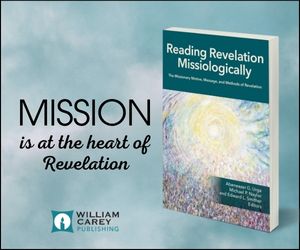EMQ » July–September 2023 » Volume 59 Issue 3

Summary: Michael Stroope’s book, Transcending Mission, offers a semantic challenge on the use of the words mission, missionary and missional. He believes we distort history when we use these words to describe biblical people and activities. Using a cognitive linguistic lens, we can evaluate his claims against the way people develop complex schematic networks which help them assign meaning to words. This may lead us to consider that these words may have broader meanings when understood within their appropriately described context.
By Phil King
Was Paul a missionary? And more worryingly, what might today’s audiences infer if you call him one? Would they presume he was like missionaries they know: full-time religious professionals, sent by an organisation to convert the unreached?
These are key concerns for Michael Stroope’s Transcending Mission (2017),i centred on a question of semantics: what do the words mission, missionary and missional mean? He argues that since these words only appeared in the modern era, we distort history when they describe biblical people and activities.
For Stroope, the words we use influence how we perceive the past, and mission language “poisons” those perceptions. If language helps us look at history, he claims that mission is “murky” language,ii a “marred” lens,iii that “clouds” rather than “clarifies.”iv
Or, if language helps us “hear” the past, mission language “infuses” Scripture with “disturbing noise,”v “muffling” the gospel and its implications.vi He is even stronger with taste metaphors: mission language is “contaminated and therefore less than fit to drink,”vii it “pollutes our understanding” and “poisons our interpretation.”viii
Stroope follows a long tradition of linguistic relativity, which emphasises that words do affect how we see the world. As Sapir noted, “the worlds in which different societies live are distinct worlds, not merely the same world with different labels attached.”ix
So, if we give a contemporary English label (missionary) to Paul (a first-century, Greek-speaking Jew), we are not just playing with words. At best, we domesticate his world. At worst, we are twisting it to support our own agendas, claims Stroope: “Mission and missionary are more than simple terms, neutral concepts or bare facts… mission constructs reality in a particular way.”x However, Sapir’s assertions have been hotly debated: just how much influence does language have? Does it determine our thoughts, or merely channel our mind down certain pathways?
We need a lens to further evaluate Stroope’s claims about language and it’s meaning. Cognitive linguistics provides that. Through it, we can explore how we each acquire meanings for words like mission, and how we draw inferences from utterances, like the claim that Paul was a missionary.
Member-Only Access
Evangelical Missions Quarterly (EMQ) is available to Missio Nexus members as a member-only benefit or as a digital subscription.
Please login to gain access or join Missio Nexus!








